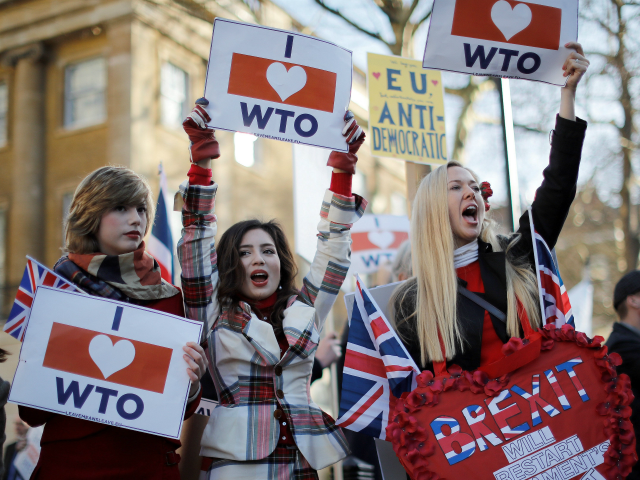A poll has revealed that two-thirds of young people want a strongman as leader, while more than one-quarter would be happy with the military leading the country, revealing that younger generations are turning their backs on decades of liberalism.
The poll of 5,073 people conducted by Hanbury Strategy between the 21st and 28th of June and published on Thursday by conservative think tank Onward found that across all age groups, 58 per cent of people think that having “a strong leader who does not have to bother with Parliament” would be a good way to run the United Kingdom.
The results come as Prime Minister Johnson, a very much larger-than-life political figure compared to ‘strongman’ U.S. President Donald Trump, is set to battle the Remainer-dominated House of Commons to deliver Brexit, as pledged, by October 31st.
Of all those questioned, just over one-quarter, 26 per cent, said it would be good “having the army run the country”.
However by age range, in both questions, Onward remarked that “Younger voters are most authoritarian,” with 66 per cent favouring strongman leaders, and when asked about army rule, 36 per cent backed the idea.
The findings back up research from 2017, where a study of social attitudes conducted by the University of Sheffield and University of Southampton found young people in Britain are more right-wing than older generations, challenging the notion that younger generations are inevitably more liberal than their predecessors.
Poland Scraps Income Tax for Under-26s to Encourage Young to Stay Home, Emigrants to Return https://t.co/r9naPFmXeX
— Breitbart London (@BreitbartLondon) August 2, 2019
Onward also found that in terms of social and cultural issues, people were expressing more conservative, traditional values “than fifty years of liberalism would predict”, with 71 per cent of people thinking that “more people living in cities has made society worse”, 66 per cent saying that “more people going to university and fewer gaining technical qualifications has been bad for the country overall”, and 63 per cent believing that “fewer people are getting married because of a decline in family commitment and values”.
Respondents also did not have a lot positive to say about globalisation, with 66 per cent of people thinking that “globalisation has not benefited most people” with 61 per cent of people believing that “on the whole, jobs and wages have been made worse by technological change”. More than half, 59 per cent, have said that “increases in immigration have had a negative impact on the economy overall”, compared to 41 per said who said the impact has been positive.
Lord James O’Shaughnessy from Onward said of the results: “We found that voters believe the growth of cities and increasing numbers of people going to university have been bad for society. They think that communities have become more segregated rather than diverse and that family values are being eroded, and that globalisation, technological change and immigration have harmed ordinary people’s lives, jobs and wages.”
"…But instead their experience of the west seems to have reinforced their social conservatism and traditionalism in many ways." https://t.co/9tmQ9N4OBm
— Breitbart London (@BreitbartLondon) November 18, 2017
Britain is not the only European country where the younger demographic is turning to the right, with an academic finding that young Poles who travelled westwards, instead of liberalising, are having their eastern European conservatism and traditionalism reenforced.
Aleks Szczerbiak, a professor of politics at the University of Sussex, said in 2017: “It was long assumed that young Poles would come to the west and become more secular, multicultural and liberal, and that they would re-export those things back to Poland. But instead their experience of the west seems to have reinforced their social conservatism and traditionalism in many ways.”

COMMENTS
Please let us know if you're having issues with commenting.